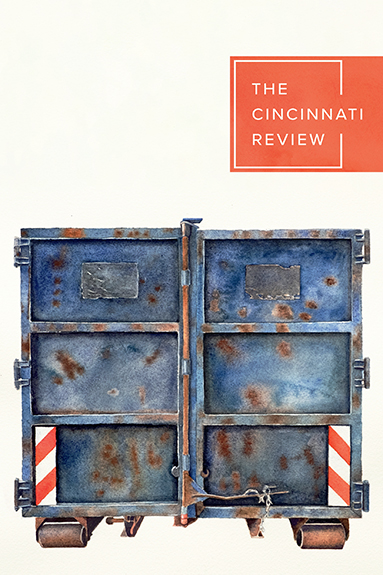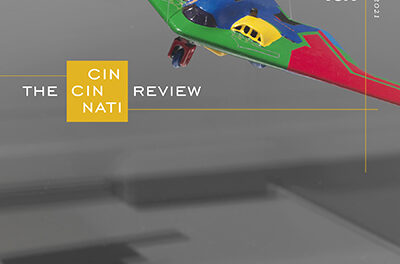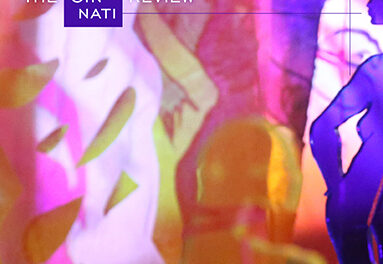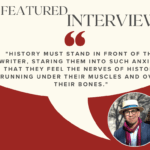In the days following the tragedy, after the funerals were over and even the local papers had moved on to other stories, Albert stopped leaving the house.
For a couple days he put on a performance for his father, who was on bereavement leave from the university, where he was a professor on the history and horrors of Nazi Germany. Albert dressed in the morning, packed his backpack, et cetera. But his father disappeared from the house before Albert woke, and stayed away for longer and longer periods of time. Albert did not know where he went, nor did he ask.
Albert was glad for the silence. He unplugged the landline to stop its incessant ringing. After a few weeks a man in a Clark County School District polo shirt came by and knocked on the door for a long time. Presumably to discuss why Albert had stopped attending school. Albert stared at him through the peephole until he went away.
Which is how on the morning Albert cut himself with a kitchen knife, he was alone. Only his eyes to see the blood draw itself like a bright floral fault line against his skin, then pour down his arm and spatter on the linoleum. Only his eyes to see how fast it ran, pumped from his own beating heart.
So that’s what it looks like, he thought. All that blood bottled inside.
Surprisingly, it did not hurt. Pain was the incorrect metric through which to view the emptying sensation he was experiencing. He was quickly lightheaded and jelly-legged and had to sit on the kitchen floor. Yet some instinct for life must have asserted itself, because he then found himself outside, collapsing on the front lawn as one of the old ladies who lived across the street rushed over, calling 911 on her cordless.
“I was making lunch,” he explained in the emergency room.
When his father eventually arrived, he sat on the edge of the hospital bed and looked down at Albert with his blood-soaked clothes and bandaged arm. It was only the second time Albert had ever seen his father cry.
“Oh, Albert,” he said. “What am I going to do?”
* * *
His mother had been an assistant professor of Extinction Studies at the university, researching and lecturing on the disappearance of whole biological groups. The patterns of their collapse, the phylogenetic and ecological dimensions to their obliteration.
When she described her field of study to others, a common reply was how depressing it all sounded. She didn’t agree, of course. Ninety-nine percent of all things that have ever lived on Earth are extinct, but in the course of her research she found that when faced with death, life often clung on where and how it could. And if it could not flourish, if there were to be no ever-extending future for a particular species and it were to slip from the ledger of existence, whether through predation or ecological disaster or impact event, if it were to become irreparably and irretrievably past tense, then would that truly be so sad? As she liked to say, nobody made it out of this world alive.
Did she think about this when that young man walked into her class? This was one of the many things Albert wondered about that afternoon. Did she recognize him? He had been her student, after all, although she’d had so many. Did she recognize her own impending extinction? Albert knew how much it would have rankled her to hear his flagrant misuse of the word extinction, used as it was to refer to the annihilation of a single individual. But it was the word that came to mind. And, in the end, it was not just an individual. There were eight of them.
* * *
The day after he returned from the hospital, a banged-up station wagon dragged itself down the street, sputtering noxious fumes as it parked outside his house. The station wagon’s lime-green paint was flaking off, and the wood paneling on the driver’s side was scratched the whole length of the car. A woman with wild gray hair got out of the car and stretched in the sun. Then she turned and looked right at Albert’s house. He closed the blinds in a hurry.
There was a knock on the door. From the den, where he was pretending to read an old copy of The American Journal of Extinction, he heard his father answer the door. Then muffled crosstalk.
“Albert,” his father called, leading her into the room. “There’s someone who wants to see you.”
His father stopped at the door as she came across the room and squatted down right where Albert sat, so they were eye to eye. Her faded jean jacket was tattered at the collar. It looked like her nose had been broken at some point. Her whole face had a piercing, severe character.
“Why, look at that,” she said in a scratchy voice. “We have the same face. I’m your Aunt Susie. Remember me?”
After a moment he nodded. She smiled and said, “That’s okay. It’s been a spell. Since . . . when did Halley’s Comet pass?”
“’86,” his father said behind her.
“Ten years then. I was still in my thirties. Sprightly even. You were just a little guy back then. You put underwear on your head and did a little dance for me. How old are you now?”
“Thirteen.”
She whistled. “Time certainly rolls on, doesn’t it. I’ve been traveling, Albert. Maybe you already know that. Maybe not. But I happened to be passing through Vegas and your pop was kind enough to let me crash here. I’m hoping we can spend some time together.”
“I have to lie down for a while,” his father said.
“You go right ahead, Gunnar. Get some shut-eye, pal.”
He looked back at her from the doorway, touching his thumb to each of his fingers the way Albert knew he did when he was anxious. He opened his mouth as if to say something, but just left.
When he was gone, she said, “I’m sorry I didn’t get here in time to see your sister.”
“She left right after the funeral,” Albert said. His sister, Eva, was three years older but already in college on the East Coast. Even before their mother had died, when Eva was still at home, she’d rarely emerged from the solitary confinement of her room, where she read gloomy books filled with French words.
“I’m sorry I didn’t come for the funeral too,” Susie said. “I was traveling and didn’t hear about it all until after. Do you wanna go for a drive? Show me around town?”
“I haven’t been outside,” he said, shaking his head. “Except for . . .” he trailed off, looking down at his bandaged arm.
“That’s okay. When I was a kid, I had astraphobia, believe it or not. That’s the fear of thunder and lightning. I bet your friends miss you.”
“Yeah,” he said. For a while, the morbid curiosity of his classmates drove some to his house to see the spectacle up close. But as they stood in the living room, condolence cards and flowers in their hands, there must have been something about how Albert stared into space, about how photographs of his mother were still on the walls, about how the carpet was scattered with marigold petals from her wake. He could see it reflected in their eyes, the sight and stink of real-life catastrophe, too unfathomable to stomach. After a few days no one else visited.
“We don’t have to go anywhere,” she said. “What do you do for fun?”
“Nothing. Read books.”
“I’ve always liked movies. I haven’t been properly indoors for a spell, so haven’t seen one in ages. Your mom and I used to watch a lot of TV when we were kids. Out there at the compound we’d get random, scratchy signals piped in from Vegas and Salt Lake. Every Friday night we’d stay up late to watch the Vegas Vampire, who’d crack bad jokes between cheap horror movies. It was all pretty corny, but flickering in and out from some soundstage graveyard on the black-and-white TV, he was pretty creepy, I gotta admit. Not that I’d ever say that to your mom.”
Her eyes drifted back and she smiled at him. “Wanna watch some TV?”
“We don’t have one,” Albert said. He did not explain how his father called TV brain poison. How he said it was deracinating the minds of the youth.
“No TV?” she said, holding her hand to her chest theatrically. “We’ll have to do something about that, won’t we?”
* * *
Later that day she lugged inside the house a twenty-inch Panasonic, beaming as if she’d brought home Thanksgiving dinner through a snowstorm.
“I got a good deal at a pawnshop,” she explained as she set the television set on the marigold-strewn carpet. She removed the stacks of books and academic journals covering the living room table, dropping them in great heaps to the floor before lifting the TV up onto it.
As she got on her knees to plug it in, she threw the clicker to Albert on the couch, where he awkwardly fumbled for it with his undamaged arm. “Do you wanna drive?” she asked.
He pushed the power button. The ambient atmosphere of the room seemed to charge and buzz as the TV hummed to life.
Without cable, there were only a handful of channels to flip through, the cartoons and soap operas and daytime game shows. Albert settled on Channel 33, which played an hours-long marathon of alternating episodes of Tales from the Darkside and Monsters, stories of flying arctic monsters that snatched up lying parents on Christmas Eve, and evil-eating slimy monsters who devoured slimier late-night talk-show hosts. His father appeared in the doorway and took in a few minutes of what they were watching, blinking a succession of times in the irradiated glow of the television that had suddenly appeared in his home. Then he gave Aunt Susie a twenty for Pizza Hut and left the house.
Later that night they were sprawled on the couch with a mostly empty pizza box on the floor between them when a still image of a snarling man with vampire fangs filled the screen. There was a crack of lightning and a far-off-scream sound effect, then the screen filled with dripping blood.
“Now what’s this?” Susie asked.
SATURDAY FRIGHT AT THE MOVIES appeared on the screen, superimposed against a pixelated image of a castle on a cliff and a fluttering bat. WITH HOST COUNT COOL RIDER.
A blare of stage-show trumpets came through the TV as a man dressed like a cross between Dracula and late-stage Elvis drove a chopper past the Welcome to Las Vegas sign. On a castle-dungeon soundstage, two hair-sprayed women in black fishnets opened a coffin. Out of the smoking tomb emerged the vampire Elvis biker in pancake makeup and glittery dark cape.
“Good evening and welcome to Saturday Fright at the Movies,” he said in a Transylvanian accent, baring his fangs. “I am your host Count Coooool [he howled] Rider. Oh, I can smell the Halloween fright in the air as the spectacular night draws near.”
As Count Cool Rider delivered his cheesy puns about “films that you can really sink your teeth into,” Albert got the impression he mostly introduced monster and slasher movies. But in the lineup tonight was something different—a triple-header of the Mad Max trilogy.
The first movie was a slow character study about the erosion of social order and the blighting of a world without gasoline. In contrast, the next two entries, The Road Warrior and Beyond Thunderdome, were pure madness and death and radioactive fallout, mutated creatures fighting tooth and nail in the outback wasteland.
“Why does Mad Max have a single shoulder pad?” Albert asked at one point, biting into the last room-temperature piece of pizza.
“Maybe it just looks cool,” Susie replied with her mercurial smile, like she was listening to a running commentary track only she could hear. “Or maybe he has to carry the weight of the world. But he’s broken inside.”
Susie went to the bathroom. On the screen, the Lord Humungus, goalie-masked and anabolic, stood in his armored Ford F-150 death chariot, surrounded by his metal-spiked, mohawked soldiers in leather.
When Susie came back, she was wearing Albert’s hockey goalie mask, which had been tacked to his bedroom wall. She flexed her biceps like Lord Humungus and screamed until the veins in her neck looked like they were going to pop.
“Just walk away,” Lord Humungus said on the screen during her pantomime. “I will give you safe passage in the wasteland. Just walk away and there will be an end to the horror.”
* * *
They watched a hundred movies about the end of the world.
Susie bought a Buick-like VHS player at a thrift store. With his dad’s credit card, she opened an account at Hollywood Video and brought back armloads of videotapes. They watched everything. The Time Machine and The Omega Man. Silent Running and The Last Man on Earth. Night of the Comet and Escape from New York.
Despite the grainy visuals and poorly written dialogue, Albert was entranced by the visions of these movies. The fall of civilization. The depravity of the future. He hated movies that showed the apocalypse averted or some return of social order. He told his aunt he was a purist in this way.
“But if the only constant is change,” Susie said, “doesn’t it mean that bad things can get better again?”
“Not the end of the world,” Albert said. “There’s no coming back from that.”
“One thing I never understood,” Susie said, “is why stories about the future are always narrated in the past tense.”
She said it made her think of an even farther future from which the story was being written, some unknowable future future. And if she were to assume two futures, why not three or four or an infinite succession of timelines?
“It breaks my brain to think about for too long,” she said.
“My dad always talks about the past in the present tense,” Albert said. To her great amusement, he cleared his throat and bellowed, “It’s June 1940, and Hitler victoriously strides into Paris, thinking bitterly about his rejection from art school when he was eighteen years old.”
He looked down at the remote control and said, “My mom always teased him about it. So he sometimes used the past tense with her. We’d be looking at menus in a restaurant and he’d say, So what did you want to eat? Or she’d be getting ready for work and he would say, You looked very pretty. I loved you very much. That kind of thing.”
“I’m sorry, Albert.” Then, after a moment of silence, “I got this for you today.”
She handed him a boxless VHS tape with a yellowed label. She said she’d found it at a yard sale. A blood or cola stain obscured the title, but Albert was able to make it out in the light.
Planet of the Apes.
When they inserted it into the VCR, they were not surprised by Charlton Heston, whose blow-dried presence was familiar to them from Soylent Green and The Omega Man. But in this movie there was something electric about the crash landing onto an unknown planet, the humanlike apes and apelike humans, the blasted torso of the Statue of Liberty, the realization that this de-evolved world was their own future Earth.
“I can’t help thinking,” Heston said, “that somewhere in the universe there has to be something better than man. Has to be.”
In rapid succession, they devoured all the Apes movies. Their favorite was the first sequel, Beneath the Planet of the Apes. In the year 3955 AD, under the surface of the planet lived the mutated remnants of humanity, made alien and unknowable by the future. The near annihilation of the Earth had not delivered the species to their extinction. Instead, the last humans had adapted to the new, strange, horrible world. They lived in a vast underground bunker and worshipped their god, the vengeful Alpha-Omega Bomb—a nuclear device set upon an altar of stone.
“Glory be to the Bomb and the Holy Fallout,” the mutant priest recited from the television. Next to the TV on the table sat a box of personal effects the university had sent from his mom’s office. “As it was in the beginning, is now, and ever shall be. World without end. Amen.”
His mother’s framed PhD diploma stuck out from the box, the glass gleaming in the TV glow. In Planet of the Apes, the chimps are the academic caste. They are blown up in the fortieth century, with everything else, by the Alpha-Omega Bomb.
* * *
He went one night into his father’s room, as he sometimes did, to look out those big windows onto the hallucinatory shimmer of the Strip in the distance. He imagined what it would look like if—when—it all went dark. No neon. Zero light pollution. The stars brighter and clearer than Albert had ever seen before in his life.
In such a world, there would be no authorities. No consequences. Just him and his aunt like the mutated, telepathic humans in Beneath the Planet of the Apes, living in the underground ruins of the blasted city. The earth rumbling above them as they sang praises to the Alpha-Omega Bomb, which would destroy everything. Or they would be in a black supercharged V8 Pursuit Special, like the one Max drove, fending for themselves with a sawed-off twelve-gauge in a ruthless, irradiated wasteland.
When he was given the choice, Mad Max never came out of the wasteland. He stayed in that scorched place, beyond the laws of humanity, where the failure of civilization could never hurt him again.
“What are you doing, Albert?” His aunt had appeared behind him in the doorway. She was looking at him sitting there, the oak box his father kept in the bottom drawer of his bedside chest open on the floor. The pistol Albert had removed from it and now held in his hand was a genuine 1938 Luger, all eight rounds loaded.
His aunt stood half in the shadows, where Albert could not see her face. But she stood there for a long time, watching him as if waiting for something. And when this expected something did not arrive, she held out her hand to him from the half dark, half light in which she stood.
“Come on now,” she said. “I just ordered a pizza. Let’s watch TV.”
* * *
His aunt told him that one of the last times she saw his mom, they went to the movies. His mother had wanted to see Less Than Zero, but Susie twisted her arm to go to the action-comedy Innerspace. At the film’s climax, a miniaturized henchman falls into Martin Short’s stomach. Unprotected from his miniature vessel, the henchman dissolves in the deadly ocean of Martin Short’s bile, shrieking as his flesh melts from his bones and he is reduced to a skeleton floating in the abyss.
As the credits rolled and the lights came up, his mother was crying, Susie said. She was moved by the transcendence of the image. She had said it visualized for her something she’d never had words for. Call it: a sense of floating in a meaningless universe. Call it: a reduction to nothingness. Whatever the name, watching it articulated on the big screen made her feel like everything had clicked into place, zoomed into focus, if even for just a moment.
Susie told Albert that over the subsequent years, when the noise of the world had grown too loud and she feared becoming lost within the hall of mirrors of her mind, she thought of her sister and remembered her Innerspace feeling. She imagined it was her own body the villain’s skeleton floated within. She felt him dissolve within her, bit by bit, until the hopelessness she always felt in her heart became dull and manageable enough for her to ride out. For just a little longer.
“Did we really meet before?” Albert asked. On the screen Count Cool Rider was cracking puns about the human-head-harvesting siblings of Motel Hell.
“You were little.”
“How come you only came back now?”
“Your mom and I didn’t get along too well. I drove her pretty crazy, to be honest with you. But I can’t help that I’m a fuckup. It’s my brain. I thought about you guys a lot, though. Do you think about her?”
“Yeah.”
“What do you think about?”
“Stupid things. How she liked to read on weekend mornings. How she would lie on the couch in her pajamas with a book perched open on her collarbone.”
“I remember that. Her toes did this tensed-untensed thing while she read.”
“Yeah. Yeah, I remember that too.”
“You know, she once told me that she thought the dead die twice. Once when their bodies stopped. And again when all those who remembered them died themselves, taking their memories to the grave. So I guess the point is, remember while you can.”
* * *
“Hello, it is I, Count Cooooool Rider,” announced the Count as he drank from a goblet of blood in his candle-lit abattoir. “Tomorrow, on Halloween night, I will be at MGM Grand Adventures Scream Park. Come join me . . . if you dare.”
Susie looked over at Albert on the couch.
“When was the last time you left the house, kid?”
“I don’t know. Since before you showed up.”
“Don’t you think it’s time we went for a drive?”
The next night she spent a long time getting dressed up, powdering on makeup and slicking back her hair and penciling in a line of blood trailing from her mouth. She offered to paint on the same getup for Albert but could only convince him to put on the vampire fangs and purple cape she’d bought for them at the Halloween Superstore.
He felt like a vampire as he stepped outside, as if the early evening sun would boil the sweat bubbling out of his skin and burn him alive there on the doorstep. He imagined he was leaving a subterranean fallout shelter years after the Earth had been ravaged by nuclear strikes. That civilization was decimated and a lawless wasteland stretched before him.
From the inside of his aunt’s station wagon, he surmised she had been living out of it for some time. A bedroll and pillow were in the back seat, and the far back was filled floor to roof with boxes and clothes and other personal belongings.
When she turned the car on, the radio jumped to life, a man with a deep, eerie voice talking about UFOs and covert military experimentation at Area 51. The tape clicked over and the same man said, “So, I am fascinated by werewolves. Our guest today—”
“You listen to Art Bell?” Susie asked. When he shook his head, she said, “You should. He lives out in the desert here in Nevada, in a compound surrounded by hundreds of miles of nothing. His show airs after midnight, but I tape the episodes. You never know when the government will pull the plug. He’s the only one who tells the truth.”
“What truth?”
“The world is not what you think it is. And they are all lying to you about it.”
Albert thought there might be sense in that—but there was something about the pitch of her voice, the passion of her delivery, that made him look over at her across the front seat, her face made up like a ghoul with blood dripping from her mouth.
The evening traffic ground to a halt when they approached Las Vegas Boulevard. As they merged onto the Strip and inched bumper to bumper down the neon-lit boulevard, Susie whistled and said, “Look at all these people.”
They edged along, and Albert looked out the window, his reflection illuminated by the spangled lights of the pleasure houses and gambling towers. He imagined Count Cool Rider riding beside their car on his chopper. The Count took one hand off the handlebar of his hog and with a gloved forefinger pulled down his sunglasses. He looked at Albert with his yellow eyes, then hissed at him with blood-soaked fangs.
“Look at all these people,” Susie repeated. “All packed into this one city. No water out here, in the middle of the desert. It’s not natural.”
But Albert felt differently. Sitting in the dark of the car with her, it was as if the two of them were lost in time within a space capsule, bombarded by cosmic radiation on their reentry into the poisonous atmosphere of the future Earth.
They parked somewhere toward the top of the multitiered MGM Grand parking garage, a winding wedding cake of concrete floors. In a crush of people, they took the elevator to the casino and then shuffled up a series of escalators, onward and upward to the Scream Park. Albert tried not to show it, but he was buzzing, craning his neck to see beyond the heads ahead of him on the escalator, waiting for his first glimpse of the Count. His aunt smiled at him when she caught his glance, but it was paper thin. Her eyes darted between the discordant points of chaos, the surging crowds and neon lights and blaring slots.
“Look at all these people,” she said again as they finally got to the long snaking line at the entrance. Albert stood on his tiptoes and tried to look up beyond the turnstiles, where he expected to see the pompadoured Count flaring his glitter-and-crimson cape.
“I think I see him,” Albert said. “Do you—”
“Back off, asshole,” Susie snapped at the man behind them.
“Easy, lady,” he said. “I didn’t mean to step on your foot—it was just an accident.”
“Are you all right, Aunt Susie?” Albert touched her arm. She threw off his hand.
“I said I was sorry, lady,” the man said.
“Get the fuck away from me,” she shouted. “Everyone get the fuck away.”
“Calm down, lady.”
Albert saw a security guard striding toward them. His aunt broke off from the line and speed-walked away, off toward the escalators. Albert went after her, losing sight of her ahead in the ebb and flow of foot traffic.
Above the bobbing heads, he saw her running down the escalators. He tried to follow, elbowing people aside. “Excuseme,” he said. “Watchout.”
When he reached the parking garage, he realized he did not know what level they’d parked on. He ran up and down several levels, his heart hammering as he became increasingly sure she had left him.
But he finally caught sight of her, standing by the green station wagon with her head pressed against the car. As he came up to her, he saw that her eyes were closed and a puddle of vomit was at her feet.
“I’m sorry,” she said when she eventually opened her eyes. “Just too many fucking people.”
“It’s okay,” he said. He pulled off his cape and wiped her mouth with it.
They drove back in silence down the Strip. At a stoplight by the Tropicana, a man with a tall plastic yard cup, which looked like it was filled to the brim with a swirl of paint colors, banged on the hood of their car and shouted “Whoo!” Then he sucked fiercely on his curly straw and wandered off.
When the light turned green, Susie said, “You need to go back to school, Albert. It’s time to get on with life.”
“Did my dad tell you to say that?”
“No one told me to say anything. I can’t babysit you forever. I have a life, too, you know.”
“Oh. Okay. Sorry for wasting your time.”
“I didn’t mean—”
“You don’t have to worry about me again. Go live your life. It looks like you’re doing really well on your own.”
“You don’t know what you’re talking about.”
“Neither do you.”
“I never said I did!”
They drove in silence for a while longer. Susie turned onto Sahara, eight lanes of relative peace and quiet stretching off to the mountains on the horizon.
“I’m not a bad person,” she said. “Adults should rise above it for kids, but it’s hard. Nobody’s perfect. Some of us are as far from perfect as you can get. Your dad doesn’t have any family to help him through this. And I’ve really been trying, but . . . you know about my and your mom’s family. God, the things we were allowed to do growing up out there in the fucking desert.”
“Like what?”
“I don’t know. Your mom and I liked to make homemade flamethrowers and burn up old shit lying around.”
“Really?”
“They’re not that difficult to put together. You just need a water gun and something flammable. And balls of steel, of course.”
“So . . . can we make one?”
“Of course not.”
“There was no flamethrower in Mad Max, but there should have been.”
“Come on, kid, I mean—” She looked over at him as they drew up to a stoplight, the interior of the darkened car illuminated in the red glow. “Oh, what the hell.”
When they got home from Walmart, Albert carried his new neon-green, pump-action Super Soaker into the garage, Susie behind him. She put the gas can on the workshop table with a foul-smelling slosh.
As Albert tried to unfold a metal clothes hanger with his one good hand, Susie rifled through a nearby box of cassette tapes.
“Voilà,” she said, inserting one into a dusty boom box. It kicked in midsong.
Over a guitar line that was like shards of glass, someone screamed about how there was no future.
“I’ll do that part,” she said, taking the hanger from him and unwinding it to wrap around the front of the water gun—in order to hold the flare, she explained. “I don’t want you accidentally cutting yourself again.”
While he watched her twist the metal wire, he said, “That wasn’t an accident. I did it on purpose.”
“I know, Albert. I know.” After another moment she said, “You remember what I said yesterday? How your mom told me the dead die twice. She was right. We have to withstand it . . . for as long as we can manage, at least.”
* * *
The way Albert would remember it, Susie left the next morning. But memory is a strange and flimsy thing, and it might have been a day or two later. Whatever the case, she sent postcards. Oregon. Idaho. British Columbia. In the movies, Mad Max never came out of the wasteland, never joined a community or came to any great realization.
As the years passed, it saddened him how his memory of his mother started to fade, that it came apart in his mind like a marigold bouquet moldering after a wake. He tried to hold on to what images and memories he could. How she would let her long hair, dark going gray, down as soon as she came home from teaching. How she screamed and clutched onto him that time he talked her into riding the world’s tallest roller coaster at Buffalo Bill’s. And, of course, how she would tense and untense her toes when lying with a book on the couch, on a Sunday morning that seemed to have no beginning and no end. But he did not know if these were actual memories or just stories he had told himself long enough that they’d come to represent what the world felt like when she was still a living person in it.
He remembered Susie, though. Her scratchy voice and odd, knowing smile. In her postcards she said little about herself or her situation, mostly referencing the movies they’d watched that fall after his mother died.
In her last postcard, she quoted the end of Beneath the Planet of the Apes: “In one of the countless billions of galaxies in the universe, lies a medium-sized star. And one of its satellites, a green and insignificant planet, is now dead.”
No one can withstand it forever.
The way Albert remembered that night with Susie in the backyard, a comet passed overhead and reduced the population of the entire planet to little piles of red dust. Then the wind came and swept it all away so that just the two of them remained.
Albert remembered the vastness of the night, the infinite and indifferent cosmos overhead. He aimed the flamethrower skyward, and Susie thumbed down on the lighter, touching the flame to the rope coiled around the wire and suspended in front of the nozzle. As she stepped back, Albert squeezed back on the pump and pressed the trigger. A stream of fire billowed out, filling the night sky.
As he engulfed the world in flames and black smoke, he saw Susie’s mouth moving, but he did not hear her voice. He did not hear his father when he came tearing out of the house yelling about the flamethrower. He did not even hear his mother’s voice. In every way that mattered, Albert was completely, crushingly alone. He was the judge and destroyer of the wasteland, devotee of the Alpha-Omega Bomb. He had survived the apocalypse but was condemned to a radioactive half-life of a million years.
And inside him, a tiny man plummeted to his doom into a sea of stomach acid, to be dissolved to nothing and carried away by shimmering green and deadly waves.
Shane Joaquin Jimenez is the author of the feminist thriller novel Bondage (Close to the Bone, 2024). He holds an MFA from the Jack Kerouac School of Disembodied Poetics. Originally from Las Vegas, where he faithfully watched Count Cool Rider every Saturday night, he now lives in Victoria, British Columbia.
For more great fiction in Issue 22.1, order now in our online store. Digital copies are only $5.











